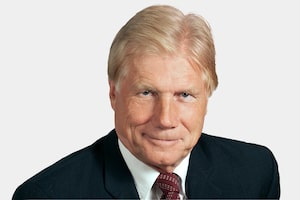A year ago this month, as we were leaving a restaurant, I posed a question to NDP Leader Tom Mulcair about Justin Trudeau: He could be a very serious problem for you guys, especially in Quebec, no?
Mr. Mulcair's countenance turned haughty. He'd expected more from the questioner. "You've worked in Montreal. Surely you know enough about Quebec politics not to think that the Trudeau brand still carries any weight in the province."
There wasn't much to fear from vanity boy, he went on. He categorized the young Mr. Trudeau as a "decent on-the-ground politician."
It's a year on and the Trudeau Liberals have bolted past the New Democrats, returning the blue-collar party to its traditional third-place ranking. In Quebec, according to a recent poll, the supposedly weightless Mr. Trudeau has a 14-point lead over New Democrats.
As the Dippers stage their annual caucus retreat in Saskatchewan this week, Mr. Mulcair is trying to put a happy face on things. The party isn't panicking. But worry has appropriately set in, with members saying it's time to change tack.
New Democrats have been attacking Mr. Trudeau for being light on policy, but how much have they put in the window themselves? "I think the No. 1 thing we have to do is start developing new policies and get them out there in the public for debate," said popular Nova Scotia MP Peter Stoffer.
Former MP Lorne Nystrom agrees. Still a player in NDP circles, Mr. Nystrom knows a little about the Trudeau effect. He was first elected in 1968, the year Pierre Trudeau first became prime minister. Father and son are different in many ways, he observed, but not so different in terms of their broad voter appeal. He listed the similarities: appealing to federalists in Quebec, ethnic minorities, particularly in Ontario, new-generation types who are tired of old politics. On top of that, there's the charisma effect.
Long-time NDP leader Ed Broadbent, who faced Pierre Trudeau for 15 years, is careful not to criticize Mr. Mulcair. He seems to have more appreciation of the leader's strengths, of which there are many. As Mr. Mulcair displayed in the Senate-scandal debate, he is arguably the most powerful force in the Commons.
The NDP's strength, Mr. Broadbent said, is in having a different economic vision than the other parties. By putting all the emphasis on the natural-resource economy, "Stephen Harper wants to take us back to the 19th century."
In Mr. Mulcair's inner sanctum, there is well-advised talk of the need to modernize the party's image and language. Irony has it that while the Liberals are seen as the party of the new generation, the NDP benches are stacked with far more youthful members, some of whom are impressive. But party images being so leader-centric, the NDP looks old hat by comparison.
In order to maintain his strong Quebec base, Mr. Mulcair faces a dilemma: appealing to nationalist Quebeckers frequently requires policies out of sync with opinion in the rest of Canada. There is also the problem of voter conditioning. Despite the NDP's magical breakthrough in the last election, Canadians still tend to think of the NDP as the third party, as Mr. Nystrom observed. It's a hard habit to break. In his view, with the old order restored in the current standings, the next few months are crucial. The New Democrats have to move hard against the Grits before the impression gets cemented that our politics have returned to the old Tory-Liberal rotation.
That means progressives will be fighting among themselves, a fact the Conservatives, who have lost 25 per cent of their support since the last election, will no doubt enjoy.
But Mr. Mulcair has no choice. Since making his way out of the restaurant a year ago, his view of the Trudeau effect has no doubt been substantially altered.
 Lawrence Martin
Lawrence Martin